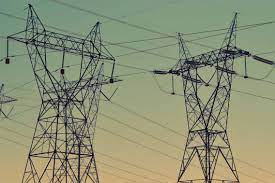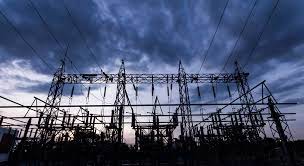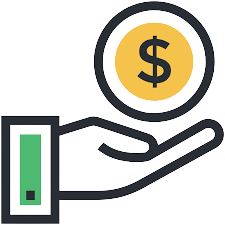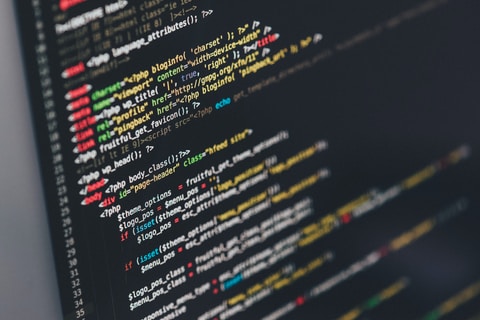
Power Engineering
The sub-field of electrical engineering that caters to the generation, diffusion, supply and consumption of electric power and the electrical equipment connected to such systems is called power engineering. The Power Engineers are responsible for the planning, designing, operating, renovating and maintaining varied systems in electric power production while minimizing the losses in diffusion and making power distribution systems’ performance better. Power Engineers are responsible for exploring and implementing appropriate techniques to plan and design renewable energy systems. They also sustain network of mechanisms that exchange various types of energy into electricity. These professionals also need to ensure the appropriate following of safety rules across power plants, look out ways to reduce energy consumption for power generation. Power Engineers also carry out research programs to understand the performance of electrical systems, components, products, and applications. Power engineers are essential in maintaining and improving the electrical power infrastructure, ensuring that electricity is delivered reliably and efficiently to meet the needs of modern society. Their work contributes to economic development, environmental sustainability, and the quality of life for communities around the world.
Role Desciption
Power engineers play a crucial role in designing, operating, and maintaining the infrastructure that provides electrical power to homes, industries, and communities. Here are key aspects and roles associated with power engineering:
Generation of Electrical Power: Power engineers are involved in the design, operation, and maintenance of power generation facilities. These facilities can include power plants that use various energy sources, such as fossil fuels (coal, natural gas), nuclear energy, renewable sources (solar, wind, hydroelectric), and more. Power engineers work to ensure reliable and efficient electricity generation.
Power System Analysis: Power engineers analyze electrical power systems to ensure stability, reliability, and efficiency. They use tools like load flow analysis, fault analysis, and transient stability analysis to design and operate power systems that can handle various loads and contingencies.
High Voltage Engineering: Power engineers deal with high-voltage systems and equipment, which are used for transmitting electricity over long distances. They design and maintain high-voltage transmission lines, substations, and transformers.
Distribution Systems: Power engineers are responsible for the design and operation of distribution systems that deliver electricity from substations to homes, businesses, and industries. This includes planning for efficient distribution, voltage regulation, and system protection.
Renewable Energy Integration: With the growing emphasis on clean energy sources, power engineers are increasingly involved in the integration of renewable energy systems, such as wind farms and solar power plants, into the grid. They must address challenges related to intermittent power generation and grid stability.
Grid Management: Power engineers work on grid management and control systems. They develop and implement technologies like Supervisory Control and Data Acquisition (SCADA) systems to monitor and control the electrical grid.
Power Electronics: Power engineers are involved in the design of power electronic devices, such as inverters and converters, which play a crucial role in converting and controlling electrical power for various applications, including electric vehicles and renewable energy systems.
Energy Efficiency: Power engineers focus on improving energy efficiency in power systems and electrical devices. They work on reducing power losses during transmission and distribution and developing energy-efficient appliances and equipment.
Emergency Response: Power engineers are part of emergency response teams that restore electrical power during outages caused by storms, equipment failures, or other emergencies. They work to minimize downtime and restore power as quickly as possible.
Regulatory Compliance: Power engineers must ensure that power systems and facilities comply with regulatory and safety standards. They may also participate in the development of regulations related to the power industry.
Research and Development: Some power engineers engage in research and development to advance technologies in power engineering. They work on innovations in materials, equipment design, and grid integration.
Consulting: Power engineers often work as consultants, providing expertise to utility companies, government agencies, and private organizations on various aspects of electrical power systems, including design, optimization, and safety.
Eligibility
| Route 1 | 10+2 with Science Stream with Maths |
| B.Tech in Power Engineering | |
| M.Tech for 2-3 years | |
| Ph.D for 2-3 years | |
| Route 2 | 10+2 with Science Stream with Maths |
| B.Tech + M.Tech (Dual Degree) in Power Engineering for 5 years |
Significant Statistics
- At least 50% in 10+2 must for admission in most colleges
- 60% must in 10+2 for admission to some other colleges
- 50% must in English language in 10+2
- Limited Age for admission to some colleges and universities
Pros/Cons
Pros
- Lucrative career prospects
- Demand for Power Engineers is always high
- Bright career prospects in the field
Cons
- Stressful and hectic job
- A lot of risk is involved
Leading Professions
View All
Electrical Engineer
Electrical engineers are responsible for designing, developing, and maintaining electrical systems, including power generation, transmission, and distribution. They work in power plants, utilities, and various industries
6.0LPA

Power Plant Engineer
Power plant engineers oversee the operation and maintenance of power plants, ensuring that electricity generation is efficient and reliable. They work in thermal, hydro, nuclear, and renewable energy power plants
6.0LPA

Renewable Energy Engineer
With a growing focus on renewable energy sources like solar and wind, renewable energy engineers are in high demand. They design, develop, and maintain renewable energy systems and facilities.
10.0LPA

Transmission and Distribution Engineer
These engineers are responsible for the efficient and reliable transmission and distribution of electricity from power plants to end-users. They work for utilities and organizations involved in the grid.
8.0LPA

Control System Engineer
Control system engineers design and implement automation and control systems for power generation, ensuring optimal performance and safety in power plants.
7.0LPA

Power System Analyst
Power system analysts use software and data analysis to study the behavior of electrical power systems, optimize grid operations, and ensure grid stability and reliability
5.0LPA

Power Electronics Engineer
Power electronics engineers work on designing and developing components and systems that convert and control electrical power efficiently, often in areas like inverters for renewable energy sources and electric vehicles
5.0LPA

Research and Development (R&D) Engineer
R&D engineers in power engineering work in research institutions, universities, or private companies to develop new technologies, improve existing systems, and drive innovation in the field.
7.0LPA
CAREER VIDEOS
Career Path
Power Engineering
4 Steps
Skills
Recruitment Area
Public and Private Power Distribution Sectors .
Recruiters
ISRO ,
BHEL ,
DRDO ,
National Thermal Power Corporation ,
Power Finance Corporation ,
Power Grid Corporation of India ,
HAL ,
DMRC ,
Jindal Steel and Power ,
Reliance Energy .
Explore Colleges
Exams & Tests
Interested? Take the next step for this career
Power Engineering
- 4 Steps
Skills Needed
Exams and Tests
Recruitment Area
Public and Private Power Distribution Sectors .
Recruiters
ISRO ,
BHEL ,
DRDO ,
National Thermal Power Corporation ,
Power Finance Corporation ,
Power Grid Corporation of India ,
HAL ,
DMRC ,
Jindal Steel and Power ,
Reliance Energy .

© 2023 TopTeen. All rights reserved.

















